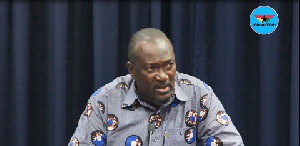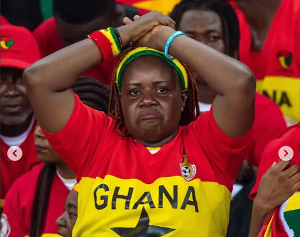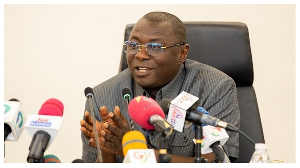Professor H. Kwesi Prempeh, Executive Director of the Centre for Democratic Development (CDD) Ghana, has attributed the failure of leadership, to the inability of citizens to hold accountable the people elect to positions of power.
He was speaking at the 2018 edition of the Ghana Action Series, a programme organised by the One Ghana Movement, a social action group, to find solutions to problems which bedevil the country.
This year’s programme, which is the 2ndof its kind, was under the theme, “Responsible citizenship and Accountable Leadership.”
Speaking on the impact of the actions of citizens on the actions of government, he said, “When we see what appears to be a failed leadership, the source is essentially us. If power emanates from the people, then those who exercise it do so on a delegated basis,” he said.
He urged citizens to be alive to the impact which their civic actions have, saying, “the role of the solitary citizen is important, but the mobilised citizen is more effective. We shouldn’t see leaders and the government as an entity that is separate from us. What they fail to do is a reflection of what we have failed to do”
This call comes at a crucial time when the citizens of Ghana are impatient to see development in their communities.
It dovetails quite finely with the recent agitations of the residents of Madina and Adentan to see their footbridges, which have been virtually abandoned for over a decade, completed to prevent the unnecessary accidents which are a weekly occurrence on the highway.
Kofi Abotsi, former Dean of the Ghana Institute of Management and Public Administration (GIMPA) Law School, however, said that the citizenry could not be blamed for being insouciant, as they had agitated over the years to no avail.
He said that “in Ghana, we have voices without accountability. Citizens have their say and rulers have their way.”
He alluded to the Prussian situation where Fredrick II is said to have given his citizens the freedom to criticize his rule, while totally ignoring their concerns.
Again, he blamed the seeming deafness of the Executive to the numerous problems of the citizens to the ineffectiveness of Parliament, blaming it on the structure of the 1992 Constitution, which had allowed for the Executive to pick two-thirds of its ministers from the House.
This, he said, had made it the aspiration of many MPs to join the executive, thereby curtailing the vociferousness and vigour with which they would take on the Executive to ensure that issues which affect the citizens adversely are quickly addressed.
He cited the example of the Madina and Adentan roads footbridges, which the authorities seem to have forgotten about.
He chided members of the Legislature for shirking their watchdog roles and becoming extensions of their political parties in the House.
Miss Josephine Nkrumah of the National Commission for Civic Education (NCCE), for her part, said that there was a disconnect between the citizenry and their duties as captured in the 1992 Constitution.
She said that people needed to understand that their actions impacted on other people, irrespective of their position in society.
She called for the teaching of ethics to children at an early stage in their development so they may adopt more conscientious practices than their elders, as this is the only way to combat the menace of corruption which has held back the development of the country.
General News of Wednesday, 7 November 2018
Source: thefinderonline.com

















